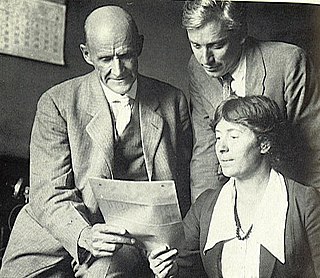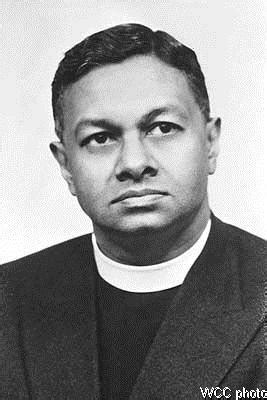A Quote by Mother Teresa
If we can not love the person whom we see, how can we love God whom we can not see?
Related Quotes
We scornfully decline, because of one whom we love and who will some day be of so little account, to see another who is of no account to-day, with whom we shall be in love to-morrow, with whom we might, perhaps, had we consented to see her now, have fallen in love a little earlier and who would thus have put a term to our present sufferings, bringing others, it is true, in their place.
God is goodness itself, in whom all goodness is involved. If therefore we love other things for the goodness which we see in them, why do we not love God, in whom is all goodness? All other things are but sparks of that fire, and drops of that sea. If you see any good in the creature, remember there is much more in the Creator. Leave therefore the streams, and go to the fountainhead of comfort.
We have a great deal more kindness than is ever spoken. The whole human family is bathed with an element of love like a fine ether. How many persons we meet in houses, whom we scarcely speak to, whom yet we honor and who honor us! How many we see in the street, or sit with in church, whom though silently, we warmly rejoice to be with! Read the language of these wandering eye-beams. The heart knoweth.
The chief difficulty is that God demands of us that we live by faith: faith in God, God's sovereignty over the future, God's sufficiency for the present; while, on the other hand, the various other gods whom we can serve appeal to us in terms of the things which we can see and the forces which we can calculate. The choice between the life of faith and the life of sight is a choice between a God whom only faith can apprehend and gods whom one has only to see to understand.
Only love for the Supreme Lord is true Bhakti. Love for any other being, however great, is not Bhakti. The "Supreme Lord" here means Ishvara, the concept of which transcends what you in the West mean by the personal God. "He from whom this universe proceeds, in whom it rests, and to whom it returns, He is Ishvara, the Eternal, the Pure, the All-Merciful, the Almighty, the Ever-Free, the All-Knowing, the Teacher of all teachers, the Lord who of His own nature is inexpressible Love."
God made the world with a heart full of love,
Then He looked down from Heaven above,
And saw that we all need a helping hand,
Someone to share with, who'll understand.
He made special people to see us through
The glad times and the sad times, too;
A person on whom we can always depend,
Someone we can call a friend.
God made friends so we'll carry a part
Of His perfect love in all our hearts.








































